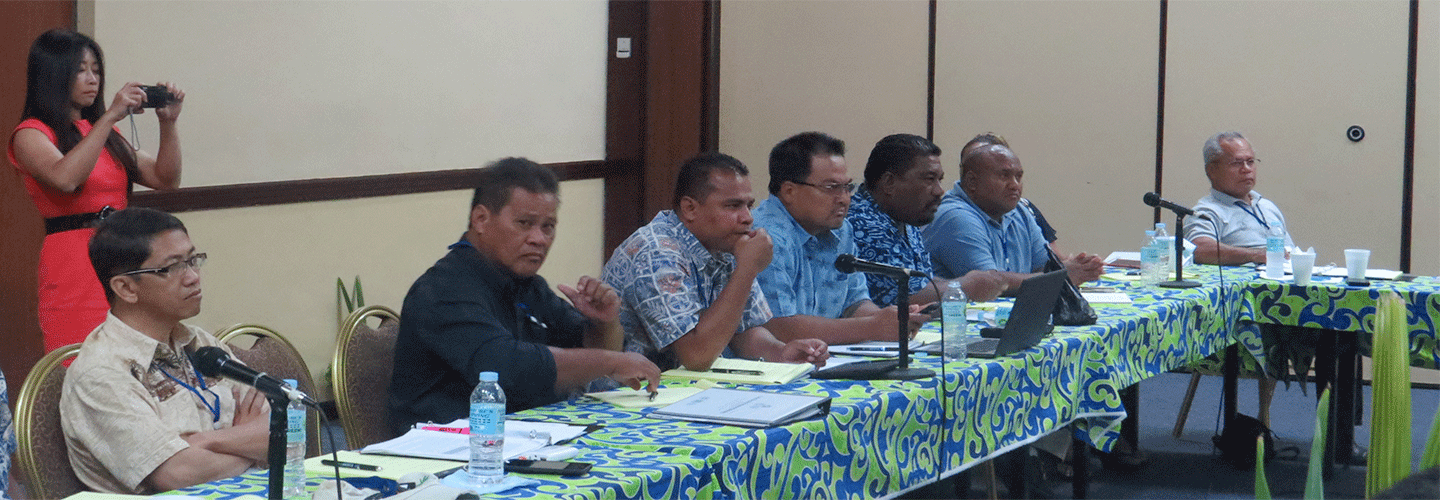Published 7 October 2016
MISSA Reforms Bill No. 47 approved by the Nitijela

After years of constant MISSA appeal for Government intervention, the Nitijela of the Marshall Islands finally made a historic decision to enforce drastic changes to the current Social Security law to save the Retirement Fund from early depletion.
On September 29, 2016, with 24 yes and 2 no votes by the Nitjela, the Social Security (Amendment) Act 2016 was enacted into law and will take effect starting January 1, 2017. Had the decision of the MISSA reforms been delayed for another year, MISSA would have no other recourse but to withdraw again at least $7.5 million from its investments in FY 2017 to cover its operating deficit and pay on time its almost 4,700 beneficiaries.
The highlights of the MISSA reforms follow:
- Remove the maximum taxable wage cap currently at $5,000 per quarter or $20,000 per annum. (e.g. with no more cap on taxable wages, anybody earning as much as $20,000 or $30,000 a quarter will be taxed based on $20,000 or $30,000 a quarter, and not $5,000).
- Increase Retirement Fund rate by 1% (from 7% to 8%) for both employee and employer contributions. However, the current 3.5% contribution rate for Health Fund will remain the same.
- Decrease benefits by 5% for those receiving $199 or more per month and maintain a maximum monthly benefit of $1,000. Thus, a retiree receiving $210 a month will have a new monthly benefit of $199.50. To avoid overlap, a beneficiary currently receiving $205 per month will have a new monthly benefit of $199 and not $194.75. Further, a retiree currently receiving $1,500 will have a new monthly benefit of $1,000 and not $1,425 because the new maximum monthly benefit is $1,000.
- For new retirees, prohibit double dipping, early retirement and remove the earnings test.
- RMI Government to subsidize a portion of MISSA deficit, including a transitional reduction of benefits in FY 2017 and FY 2018.
- Except for the 5% benefit cut, current retirees and beneficiaries will be grandfathered. Therefore, those who continue to work until age 62 will still be covered by the earnings test.
- The new law will take effect starting January 1, 2017.

The new MISSA reforms would not have been made possible without the collective efforts of MISSA, its investment consultants and actuary, and most importantly, the full support of the 11-member MISSA Task Force established by the Cabinet. The MISSA Task Force was chaired by Finance Minister Brenson Wase and vice-chaired by Sen. David Paul. Other members of the task force include Min. Kalani Kaneko, Min. Alfred Alfred Jr., Sen. Dennis Momotaro, Sen. Bruce Bilimon, Asst. Attorney General Jonathan Kawakami, Mr. Russel Edwards, Ms. Marie Maddison, Ms. Kathryn Bejang and Mr. Nicholas Tibon. The Task Force has met 12 times in a span of 3 months to come up with the final decision after considering several option plans by MISSA and its consultants and actuary.
Last month, public hearings were conducted on Majuro and Ebeye. As expected, most of the general public, retirees and employers who attended the discussions have expressed their disagreement due to its adverse financial effect to their families. However, the 24 Nitijela members who voted in favor of the MISSA reforms have seen and felt the urgency of the matter and believed that a collective sacrifice is justified for the benefit of the future generation of retirees and their families.
MISSA considers these changes as urgently necessary to cover its cash flow deficit estimated to exceed $6 million in FY 2017.
...
Recent Posts
- MISSA sues company for refusal to pay worker’s compensation and death benefits for worker involved in fatal accident
- Request for Proposals (RFP) For Investment Advisory Services
- MISSA’s Investment Committee to start more proactive oversight of the Retirement Fund
- 6 new MISSA Board members appointed by Cabinet
- Market value of MISSA’s foreign investments up by $10.5M in 2023